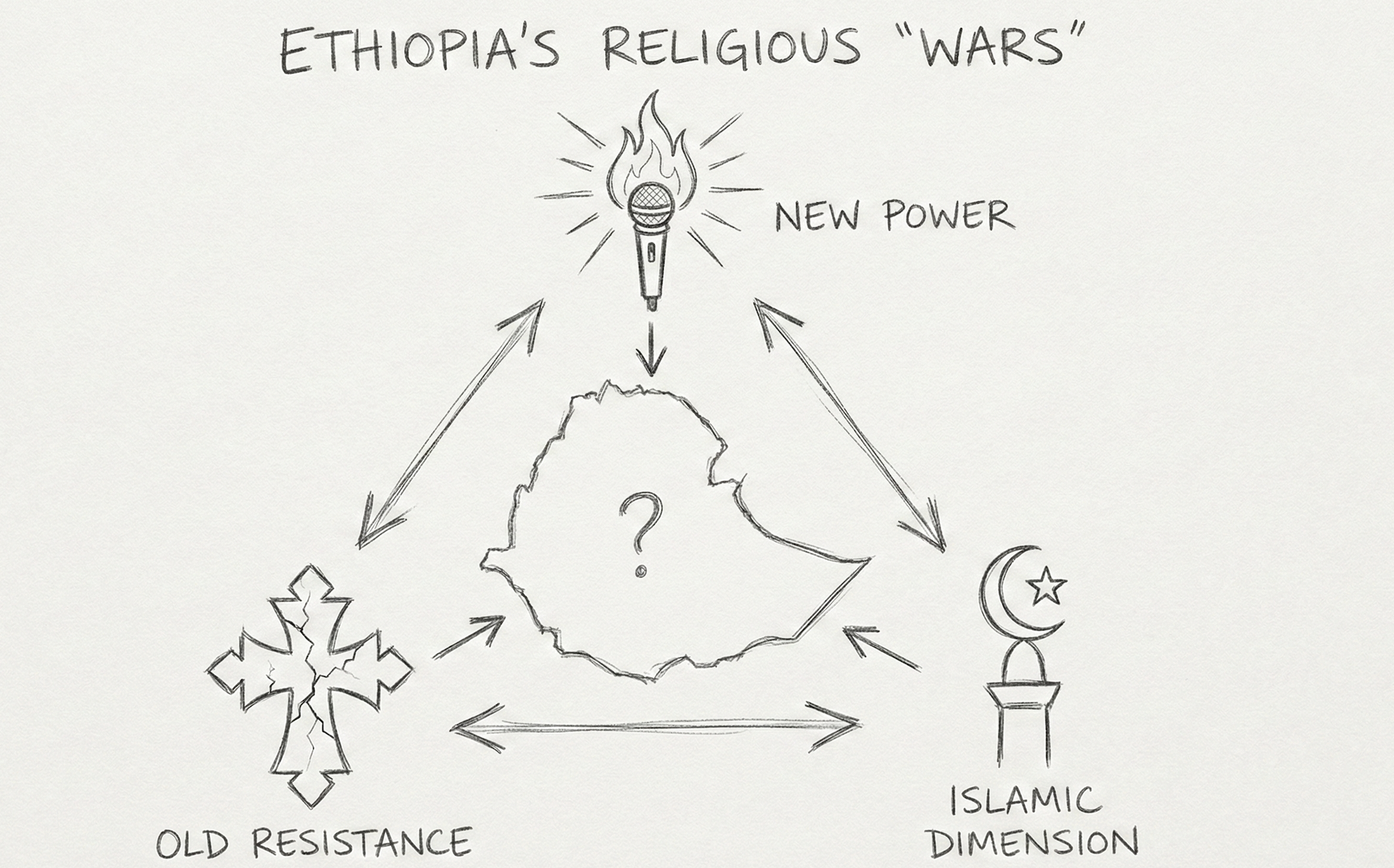Recently, the Horn of Africa politics has been enriched by the Memorandum signed between Ethiopia’s Prime Minister Abiy Ahmed and the government of the Republic of Somaliland, an entity which is still not internationally recognized. The memorandum of understanding has been designed to allow Ethiopia leasing 20km of coastal area in Somaliland in exchange for a share in Ethiopian Airlines, Ethiopia’s most prosperous and globally known company, plus it paved the way to the recognition of Somaliland as an independent state.[1] This decision has sparked some serious debates and concerns both in the region as well as among world powers. The United States quickly reacted saying Somaliland will not be recognized and that the region needs to calm down instead of fuelling controversies.[2] China followed with a statement supporting the federal government in Mogadishu and respecting the integrity of Somalia. The same reaction came from Turkey, Egypt, the Arab League and other major actors in one way or another involved in the Horn of Africa affairs.[3]

The memorandum comes as a win-win situation for both Abiy Ahmed and Somaliland’s president Muse Bihi Abdi. Ethiopia’s economic troubles, enormous inflation mixed with years of violence (first the war in Tigray, now the Amhara-Oromo conflict and other disputes) complicate Ethiopia’s growth and put the country in a fragile situation. Ethiopia has been trying to secure access to the see for a long period of time but negotiations with Djibouti to reduce payments for using the Djibouti port led nowhere as Djibouti relies heavily on rents. Moreover, security concerns in regard to possible recognition of Somaliland by Ethiopia play a significant role in other countries’ support of the Somali Federal Government (SFG). The reasons are rather simple, Ethiopia has troops in Somalia that help SFG to fight al-Shabaab. Deterioration of relations between the two countries may lead to more terrorist threats that would affect the whole region, not only Somalia. It is very probable, that al-Shabaab will try to capitalize on the anti-Ethiopian sentiments in Somalia and increase the attacks on Ethiopian troops there.[4]
.jpeg)
In Ethiopia, not everybody is happy about the steps taken towards recognition of Somaliland and the whole memorandum between Abiy Ahmed and Muse Bihi Abdi. Looking at the “peripheral” Afar region (neighboring with Djibouti and Eritrea), things seem to get one another dimension. The Afar people live in three countries, Ethiopia, Eritrea, and Djibouti and for centuries they have been using trade networks in the area. Geographical isolation helped to form the Afar identity. After the establishment of ethnic federalism, the Afar region became one of nine federal units in Ethiopia. Recently, the region has undergone enormous changes with the foundation of Semera town including Semera university.[5] Semera is an important stop on the trade route from Djibouti (both official as well as clandestine/contraband) and it is this aspect that brings uncertainty to the region when it comes to the memorandum of understanding between Ethiopia and Somaliland.

The Afars have been opposed to this plan, and have been pushing for efforts to use the port of Asab in Eritrea, as it is part of Afar territory. However, Abiy Ahmed opted for Somaliland on the grounds that Eritrea and Ethiopia do not trust each other, and in turn there are fears that Ethiopia would lose its possible investment in the port of Asab after the fall of the Isaias Afeworki regime, as no one knows what may happen in Eritrea in the foreseeable future.[6]
.jpeg)
During the times of the war in Tigray, the Afar region was heavily affected by the fight between Tigray People’s Liberation Front (TPLF) and the Ethiopian Defence Forces (EDF). In the current state of affairs, particularly in regard to the Amhara-Oromo conflict (to which we will get back in Part III), the Afar society remains neutral. According to local sources, one of the reasons is that the Afars as a clan-organized society always push for things that primarily benefit the Afars as a historical minority, long neglected from the center as part of their survival strategy.[7]
.jpeg)
Thus, the eventual recognition of Somaliland and increased trade between Ethiopia and Somaliland would throw the Afar region into an even more peripheral position as trade routes with Djibouti would most probably lose their current significance. On the other hand, the possible recognition of Somaliland by Ethiopia seems rather less likely to everyone in the Afar region, as Ethiopia has a shortage of hard currency. As a country it has a significant debt which is a major economic issue last few years, and it needs support from China and rich Gulf states who oppose the independence of Somaliland and support the integrity of Somalia. Given the fact that Djibouti hosts an Afar minority that has been fighting for larger recognition in the small country, an attempt to recognize Somaliland may also fuel more tensions between the Afars and Somali Issa clan. Such thing would make the “periphery” even more vulnerable.
.jpeg)
Many people, even in Addis Ababa, Ethiopia’s capital, see the MoU between Ethiopia and Somaliland as a dangerous step which may cause more damage to the country than what the possible benefit would be. As a colleague of mine, an Ethiopian political analyst, said, “every week we are surprised by some new and possibly explosive thing, just like this one, but at least for a few days we have forgotten about the Amhara-Oromo conflict.”[8] This will be a topic for Part III.

[1] Zacharias Zelalem (2024): Ambiguous Ethiopia port deal fuels uncertainty over Somaliland statehood, in: https://www.aljazeera.com/features/2024/1/4/ambiguous-ethiopia-port-deal-fuels-uncertainty-over-somaliland-statehood
[2] https://www.barrons.com/news/us-says-no-recognition-for-breakaway-somaliland-after-ethiopia-deal-387a1a84
[3] See e.g. https://www.arabnews.com/node/2440711/world
[4] https://www.criticalthreats.org/analysis/salafi-jihadi-movement-update-special-edition-ethiopia-somaliland-port-deal-strains-horn-of-africa-counterterrorism-cooperation-and-alters-red-sea-geopolitics
[5] Markakis, John (2021): The Afar, in: The Nation State. A Wrong Model for the Horn of Africa, ed. by John Markakis, Günther Schlee, and John Young. Max Planck Research Library for the History and Development of Knowledge. Studies 14, pp. 83-106.
[6] Interview, Semera, 16/01/2024.
[7] Interview, Semera, 16/01/2024.
[8] Personal communication, Addis Ababa, 18/01/2024.
.png)







